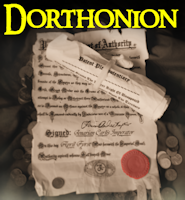This is from the Appendices of The Lord of the Rings:
Quote:
From Appendix A II: "The House of Eorl":'
"In Éomer's day in the Mark folk had peace who wished for it, and the people increased both in the dales and the plains, and their horses multiplied. In Gondor the King Elessar now ruled, and in Arnor also. In all the lands of those realms of old he ruled, save in Rohan only; for he renewed to Éomer the gift of Cirion, and Éomer took again the Oath of Eorl. Often he fulfilled it. For though Sauron had passed, the hatreds and evils he had bred had not died, and the King of the West had many enemies to subdue before the White Tree could grow in peace. And wherever King Elessar went with war King Èomer went with him; and beyond the Sea of Rhûn and on the far fields of the South the thunder of the cavalry of the Mark was heard, and the White Horse upon Green flew in many winds until Éomer grew old."
Whether that constitutes imperialism in a sophisticated modern socio-political sense depends on your point if view. I think Tolkien realised that he would never have time to flesh out the tales of the time after the War of the Ring so he had to do a kind of 'and they lived happily ever after' instead.
 Top
Top Top
Top Top
Top Top
Top Top
Top Top
Top Top
Top Top
Top Top
Top Top
Top Top
Top






